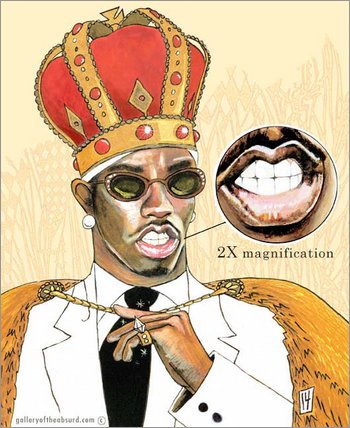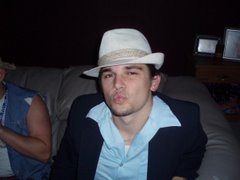Perks
I spend a lot of breath complaining about my job. I won't get into all the reasons why, but being a sports writer seems to do that to people. I think you have to have done it to really understand, but it basically comes down to this:
1. The quality of your work is sometimes out of your own hands
2. The pay and hours are terrible
3. Nobody likes you
But I'm not writing to complain today. I'm going to get a little melodramatic.
One of the perks about covering professional sports is, on occasion, you're there when a guy's dream comes true.
Last fall, I was interviewing a lowly drafted receiver, Jeff Webb, at the moment he found out he had made the Chiefs' roster. It was after a preseason game in which Webb had performed well. General manager Carl Peterson had just told reporters that Webb was going to make the team, and the message was relayed to Webb.
His eyes moistened, and you could see he didn't know what to say. The first person he thought of was Ruby, his grandmother, who had raised him. He couldn't wait to call Ruby.
Jeff Webb had just learned that he was set. He had, for practical purposes, just become a millionaire. He had a new life. The dream he had dreamed since childhood had just become real.
Shirtless, and shoeless, he hustled to find Peterson. He shook his hand and asked, "Did you really say that?"
I've been there for more of these moments this weekend. About 10 minutes after a player is drafted, his team calls him for a conference call with local media. Often, he's on a cell phone in a crowded bar, friends and family still cheering. For some of these guys, football is their only chance in life.
And when they find out their dream comes true, I get to be there. I see lives change.
And that's pretty cool.





